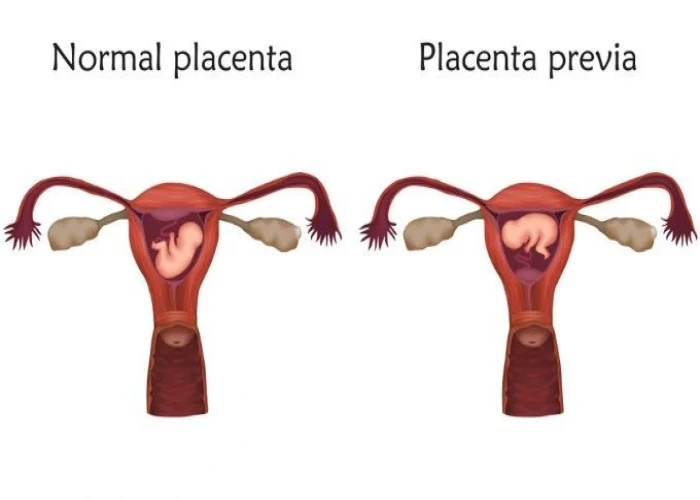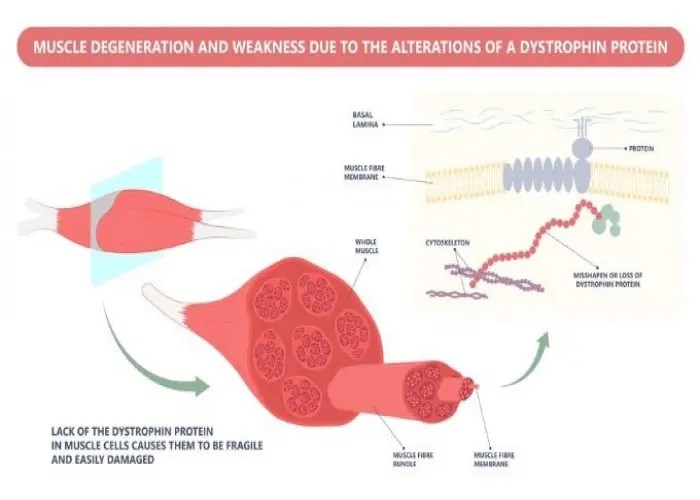 Welcome
Welcome
“May all be happy, may all be healed, may all be at peace and may no one ever suffer."
Hypothyroidism (underactive thyroid)

Hypothyroidism is a condition in which the thyroid gland does not produce enough thyroid hormone, leading to a range of symptoms and health problems. The thyroid gland, located in the neck, produces hormones that regulate metabolism and other bodily functions.
There are many potential causes of hypothyroidism, including autoimmune disorders, radiation treatment, and certain medications. It can also be congenital, meaning that it is present from birth.
Symptoms of hypothyroidism can include fatigue, weight gain, cold intolerance, dry skin, constipation, and depression. In severe cases, hypothyroidism can cause myxedema, a potentially life-threatening condition characterized by extreme lethargy, confusion, and low body temperature.
Treatment for hypothyroidism typically involves replacement therapy with synthetic thyroid hormone, taken in the form of a daily pill. Regular blood tests are typically used to monitor thyroid hormone levels and adjust the dosage of medication as needed.
In addition to medication, lifestyle changes such as regular exercise, a balanced diet, and stress management may be helpful in managing symptoms of hypothyroidism.
If you suspect that you may have hypothyroidism, it is important to speak with a healthcare provider, who can perform a physical exam and order blood tests to evaluate thyroid function. With proper treatment and management, most people with hypothyroidism can lead healthy and productive lives.
Research Papers
Disease Signs and Symptoms
- Fatigue (Tiredness)
- Swollen thyroid (goiter)
- Strong depression
- Slow heartbeat
- Absent or irregular menstrual periods
- Swollen joint
- Stiffness of neck muscles
- Muscle pain
- High cholesterol
- Muscle weakness
- Hoarseness
- Rapid weight gain
- Dry skin
- Constipation
- Sensitivity to touch or cold
- Excessive sleepiness
Disease Causes
Hypothyroidism (underactive thyroid)
When your thyroid doesn't produce enough hormones, the balance of chemical reactions in your body can be upset. There can be a number of causes, including autoimmune disease, hyperthyroidism treatments, radiation therapy, thyroid surgery and certain medications.
Your thyroid is a small, butterfly-shaped gland situated at the base of the front of your neck, just below your Adam's apple. Hormones produced by the thyroid gland — triiodothyronine (T3) and thyroxine (T4) — have an enormous impact on your health, affecting all aspects of your metabolism. These hormones also influence the control of vital functions, such as body temperature and heart rate.
Hypothyroidism results when the thyroid gland fails to produce enough hormones. Hypothyroidism may be due to a number of factors, including:
- Autoimmune disease. The most common cause of hypothyroidism is an autoimmune disorder known as Hashimoto's thyroiditis. Autoimmune disorders occur when your immune system produces antibodies that attack your own tissues. Sometimes this process involves your thyroid gland.
- Scientists aren't sure why this happens, but it's likely a combination of factors, such as your genes and an environmental trigger. However it happens, these antibodies affect the thyroid's ability to produce hormones.
- Over-response to hyperthyroidism treatment. People who produce too much thyroid hormone (hyperthyroidism) are often treated with radioactive iodine or anti-thyroid medications. The goal of these treatments is to get thyroid function back to normal. But sometimes, correcting hyperthyroidism can end up lowering thyroid hormone production too much, resulting in permanent hypothyroidism.
- Thyroid surgery. Removing all or a large portion of your thyroid gland can diminish or halt hormone production. In that case, you'll need to take thyroid hormone for life.
- Radiation therapy. Radiation used to treat cancers of the head and neck can affect your thyroid gland and may lead to hypothyroidism.
- Medications. A number of medications can contribute to hypothyroidism. One such medication is lithium, which is used to treat certain psychiatric disorders. If you're taking medication, ask your doctor about its effect on your thyroid gland.
Less often, hypothyroidism may result from one of the following:
- Congenital disease. Some babies are born with a defective thyroid gland or no thyroid gland. In most cases, the thyroid gland didn't develop normally for unknown reasons, but some children have an inherited form of the disorder. Often, infants with congenital hypothyroidism appear normal at birth. That's one reason why most states now require newborn thyroid screening.
- Pituitary disorder. A relatively rare cause of hypothyroidism is the failure of the pituitary gland to produce enough thyroid-stimulating hormone (TSH) — usually because of a benign tumor of the pituitary gland.
- Pregnancy. Some women develop hypothyroidism during or after pregnancy (postpartum hypothyroidism), often because they produce antibodies to their own thyroid gland. Left untreated, hypothyroidism increases the risk of miscarriage, premature delivery and preeclampsia — a condition that causes a significant rise in a woman's blood pressure during the last three months of pregnancy. It can also seriously affect the developing fetus.
- Iodine deficiency. The trace mineral iodine — found primarily in seafood, seaweed, plants grown in iodine-rich soil and iodized salt — is essential for the production of thyroid hormones. Too little iodine can lead to hypothyroidism, and too much iodine can worsen hypothyroidism in people who already have the condition. In some parts of the world, iodine deficiency is common, but the addition of iodine to table salt has virtually eliminated this problem in the United States.
Disease Prevents
Disease Treatments
Standard treatment for hypothyroidism involves daily use of the synthetic thyroid hormone levothyroxine (Levo-T, Synthroid, others). This oral medication restores adequate hormone levels, reversing the signs and symptoms of hypothyroidism.
You'll likely start to feel better soon after you start treatment. The medication gradually lowers cholesterol levels elevated by the disease and may reverse any weight gain. Treatment with levothyroxine will likely be lifelong, but because the dosage you need may change, your doctor is likely to check your TSH level every year.
Determining proper dosage may take time
To determine the right dosage of levothyroxine initially, your doctor generally checks your level of TSH after six to eight weeks. After that, blood levels are generally checked six months later. Excessive amounts of the hormone can cause side effects, such as:
- Increased appetite
- Insomnia
- Heart palpitations
- Shakiness
If you have coronary artery disease or severe hypothyroidism, your doctor may start treatment with a smaller amount of medication and gradually increase the dosage. Progressive hormone replacement allows your heart to adjust to the increase in metabolism.
Levothyroxine causes virtually no side effects when used in the appropriate dose and is relatively inexpensive. If you change brands, let your doctor know to ensure you're still receiving the right dosage.
Also, don't skip doses or stop taking the drug because you're feeling better. If you do, the symptoms of hypothyroidism will gradually return.
Proper absorption of levothyroxine
Certain medications, supplements and even some foods may affect your ability to absorb levothyroxine. Talk to your doctor if you eat large amounts of soy products or a high-fiber diet or you take other medications, such as:
- Iron supplements or multivitamins that contain iron
- Aluminum hydroxide, which is found in some antacids
- Calcium supplements
Levothyroxine is best taken on an empty stomach at the same time every day. Ideally, you'll take the hormone in the morning and wait an hour before eating or taking other medications. If you take it at bedtime, wait four hours after your last meal or snack.
If you miss a dose of levothyroxine, take two pills the next day.
Subclinical hypothyroidism
If you have subclinical hypothyroidism, discuss treatment with your doctor. For a relatively mild increase in TSH, you probably won't benefit from thyroid hormone therapy, and treatment could even be harmful. On the other hand, for a higher TSH level, thyroid hormones may improve your cholesterol level, the pumping ability of your heart and your energy level.
Disease Diagnoses
Disease Allopathic Generics
-
Levothyroxine Sodium
Starting at a dose of 0.05 mg daily, the dose is increased to 0.1 mg daily over three weeks. A further 0.2 dose increase in 6 weeks may be required if necessary. Doses should be increased at intervals of 14 days or more, but it is too late to get good results. Do not stop the medicine even if the symptoms of the disease are relieved and the patient feels better. Regular treatment should be continued indefinitely. For patients with impaired myocardial perfusion, the daily dose is kept between 0.05 and 0.1 mg, and with.
-
Propranolol Hydrochloride
1 pill 2/3 times daily.
-
Ferrous Sulfate
For anemia. 1 pill in the morning and 1 pill at night.
-
Fluphenazine + Nortriptyline
1 pill 2/3 times a day.
Disease Ayurvedic Generics
Disease Homeopathic Generics
Disease yoga
Hypothyroidism (underactive thyroid) and Learn More about Diseases

Preeclampsia

Placenta previa

Pubic lice (crabs)

Pheochromocytoma

Cardiomyopathy

Boils (Absces or Carbuncles)

Burns

Congenital myopathies
Hypothyroidism, underactive thyroid, হাইপোথাইরয়েডিজম, অপারেশনাল থাইরয়েড
To be happy, beautiful, healthy, wealthy, hale and long-lived stay with DM3S.
